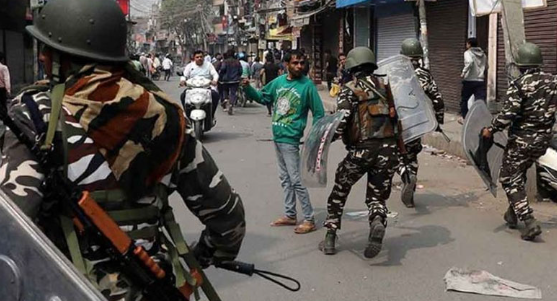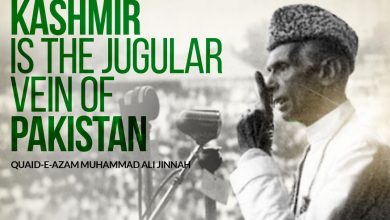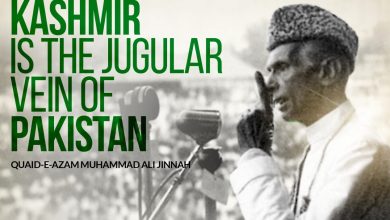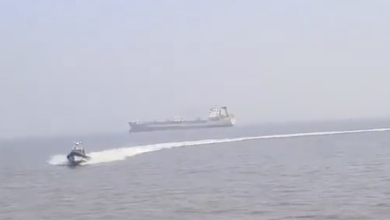 Where, after all, do universal human rights begin? In small places, close to home — so close and so small that they cannot be seen on any maps of the world. Yet they are the world of the individual person; the neighborhood he lives in; the school or college he attends; the factory, farm, or office where he works.
Where, after all, do universal human rights begin? In small places, close to home — so close and so small that they cannot be seen on any maps of the world. Yet they are the world of the individual person; the neighborhood he lives in; the school or college he attends; the factory, farm, or office where he works.
(Eleanor Roosevelt)
It has been five years since the abrogation of Article 370 by India on 5th Aug 2019. This abrogation led to the denial of those rights mentioned by Eleanor Roosevelt, and the amalgamation of Kashmir valley into Indian territory. Despite BJP leaders purporting normalcy in the territory, the dust has not settled yet. According to the Freedom in the World Report 2023, since August 2019, tens of thousands of additional Indian troops have been deployed to the region to quash any public expressions of opposition to the Reorganization Act. The deployment was accompanied by reports of intimidation and violence against civilians. Additionally, Amnesty International has been working for several years to monitor the human rights situation in the territory. It reports a lack of political participation, the imposition of repressive policies to promote censorship and human rights violation. Under the Unlawful Activities Prevention Act (UAPA), several journalists, freedom fighters, and human rights activists were detained after raiding their houses. Additionally, they were declared terrorists and were compelled to spend their lives in incarnation without being found guilty due to the strict requirements set for bail by the Indian government. Secondly, the introduction of Sedition Law (Section 124A of the Indian Penal Code) has clamped down on freedom of speech while declaring it seditious and non-bailable offence. Other acts namely the Armed Forces Special Powers Act (AFSPA) and the Public Safety Act (PSA) have also added fuel to the fire.
These acts granted uncontrolled powers to the Armed forces, the state and the police to shoot, detain, and encroach upon anyone’s property while raiding the houses
Moreover, Demographic changes are also in the pipeline. It involves new domicile rules, with millions of so-called domicile certificates issued to non-Kashmiri outsiders, who became eligible after abrogation of Articles 370 and 35A of the constitution. Voting rights were also given to non-residents. Properties were confiscated and Newland laws introduced to enable land to be seized from locals and transferred to outsiders. In 2022, BJP authorities seized the J&K Waqf Board and all its properties across the region. This marked a drive to take control of all prominent places of religious significance for Muslims in the occupied territory, including shrines. Religious leaders and Islamic scholars were arrested and prayers barred in many mosques across Kashmir. These and other measures sought to systematically erode Kashmiri religious identity and culture.
An attempt to hold G20 summit in 2023 in disputed Kashmir region to legitimize its brutal control over the disputed territory was met with disproportionate opposition from the local people. Even the UN Special Rapporteur on Minority Issues, Fernand de Varennes, while raising concerns regarding human rights violation asserted that, “the government of India is seeking to normalize what some have described as a military occupation by instrumentalizing a G20 meeting and portraying an international seal of approval.”
Additionally, the delimitation plan announced by the government handed over six more seats to Jammu in the J&K Assembly holding the capacity of 90 seats. Consequently, the representation of Jammu increased to 43% while the representation of Kashmir remained at 47%. According to the 2011 census, the Kashmir Valley’s population was seven million, while Jammu’s was 5.3m.
On 11 Dec 2023, the Indian Supreme court upheld the abrogation of Article 370 A granting a status of autonomous territory to Kashmir. The petition was signed by sundry parties who had two arguments particularly challenging the constitutionality of the presidential order and the segregation of J&K into two union territories. They argued that the President is bound by the constitution to consult the Constituent Assembly before revoking the special status of Article 370. While Kashmiris were waiting for the possibility that the Supreme court would walk back the Presidential order of 2019, the situation took an unexpected turn. The Supreme court not only declared the processes initiated for abrogation constitutional, but also stated that there are no constraints on the powers of President in abrogating the special status of Kashmir. Furthermore, the constitution of Kashmir was declared ineffective and redundant by the court’s verdict. The Supreme Court has also asked the government to held elections in the territory by September 2024. There are indications that the people may use the democratic process to express their agitations against the Indian government while marking a shift from their previous policy of boycotting the elections. However, it’s still vague whether government will proceed with the elections given the resistance shown by the people.
India’s claim of normalcy in Kashmir is baseless in the face of political, religious and human rights violations there. Additionally, the people of Kashmir are disenchanted with the Indian government who has turned the valley into hotbed for militancy. The promises regarding development and security have not been materialized yet. The feelings of doom and gloom are pervasive with people are grappling with marginalization and alienation. Furthermore, the Indian government responds to every threat by deploying more security personnel in the valley. While Indian government depicts the abrogation of the Article 370 A as an attempt to bring integration, it is nothing more than a step towards subjugation and cultural erosion.
 –The writer is a student of International Relations at the International Islamic University, Islamabad, and is currently serving as an intern at the Kashmir Institute of International Relations.
–The writer is a student of International Relations at the International Islamic University, Islamabad, and is currently serving as an intern at the Kashmir Institute of International Relations.








